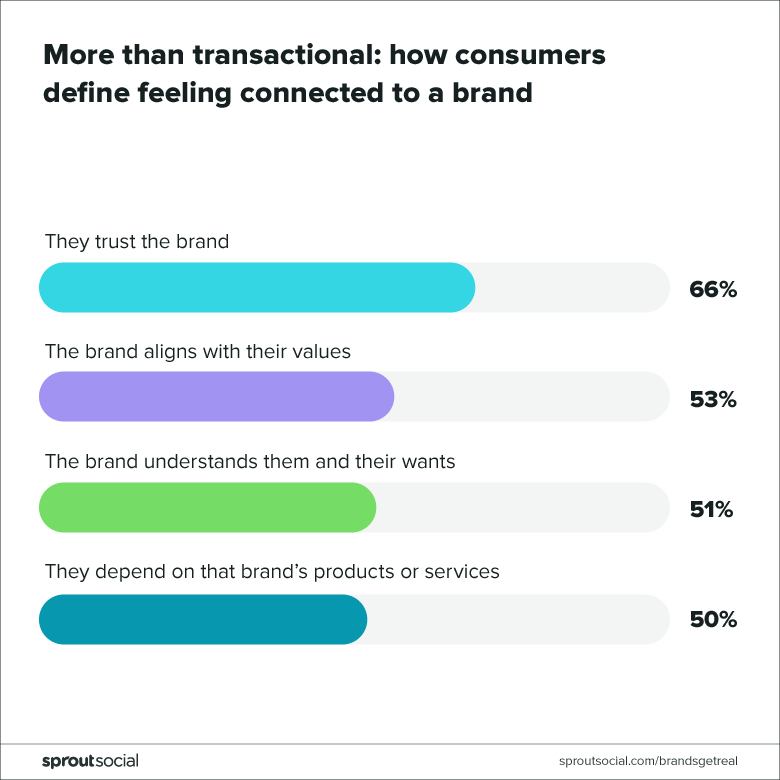How Retailers Can Create a Crucial Emotional Connection with Consumers
Branding goes beyond just a name and a logo. It encompasses the entire customer experience, from when a shopper first encounters a brand to their ongoing relationship. Brands are expected to deliver value, build trust, and create emotional connections with customers.
Unless you’ve been living under a rock, you’ve probably noticed that the relationship between consumers and retail brands is changing. Spurred by cultural shifts, motivated by advancing technology, and sped up by a pandemic, consumers are in the driver’s seat when it comes to retail sales. They want it all.
But consumers’ desires are nuanced. They still want a great retail customer experience, led by more personalized, human interactions online, yet they want to connect with more technology inside stores and for their on- and offline shopping experiences to be seamless. On the surface, it appears shoppers are being indecisive.
For the love of brands, what’s a retailer to do?
It’s complicated. Because in actuality, both online and offline shopping capabilities have merged into what should be a cohesive, holistic means to achieving the same purpose. And retailers who understand that purpose—who truly get the “why” of today’s shoppers—have the best chance to succeed.
Today’s shopper seeks out brands they feel they can hang out with, almost like a trusted friend. They want a brand they would be proud to include in their circle of trust.
One author goes so far as to compare shoppers’ relationship with brands as a courtship. “It is a deep, enduring partnership built on shared values, meaningful experiences, and a mutual commitment to growth.”
And, like any relationship, it needs to be constantly cultivated to ensure it endures.
What does it take to nurture that warm and fuzzy feeling for your brand? How can you strengthen consumer-brand relationships and increase brand trust? What traits do shoppers look for that can assure a long-lasting emotional bond? In this carefully researched blog, we’ll explore the latest insights and retail trends in consumer behavior to help make your retail brand a trusted friend.
How Friendly is Your Retail Brand?
Good Friends Share the Same Values
As it is to any relationship, the importance of shared values in branding matters. Consumers look to brands that share their sense of right and wrong and that take responsibility for making things better. Taking a bold stance on the environment, a political issue, or a social cause makes a brand stronger in the eyes of consumers who share their values.
A commitment to ethical business practices, particularly pertaining to issues such as sustainability, sourcing, and equality, makes a statement that can attract consumers. In one survey, 72% of consumers said they expect brands to be positive contributors to society.
Good Friends Make Life Easier
In a phygital retail world, omnichannel shopping is old school. It’s all just shopping. Whatever shoppers see and experience online, they expect to be duplicated, as much as practicable, in the store – and vice versa. And retailers’ ability to provide a seamless experience across multiple platforms has become a performance differentiator and is helpful in creating emotional bonds with retail consumers.
E-commerce and the physical store are, in a perfect world, totally unified and deliver a consistent, smooth, satisfying customer experience. Today, the physical store is making a comeback. In fact, e-commerce is instrumental in driving people toward in-store shopping. Although e-commerce sales are on the rise, Forrester projects that by 2028, 72% of total U.S. retail sales will originate in physical stores.
Because most shoppers are performing their product and price comparisons on digital platforms before they arrive at a store—and once in the store, most continue to gather information online—they also expect to use technology in the store. Interactive displays, real-time access to virtual brand reps, digital try-before-you-buy kiosks, and virtual try-on spaces are becoming more common.
Many retailers are experimenting with augmented reality and creating virtual worlds to provide both entertainment and education to in-store customers. In addition, there is increasingly widespread use of scannable QR codes for accessing inventory and connecting with virtual brand advocates who can help shoppers make an informed, confident purchase.
And many consumers are increasingly warming to the idea of AI in retail. In fact, an estimated 78 million Americans engaged with generative AI while shopping at least once a month in 2023. This use of AI is refining how products and services are recommended to consumers, leading to more personalized shopping experiences. Implemented wisely, AI can help brands differentiate customer preferences and measure responses so that marketing campaigns, communications, product recommendations, and the overall customer experience can be hyper-individualized and more meaningful. Plus, it eliminates tasks and frees employees for higher-level responsibilities. A deeper understanding of your customers enables you to customize your messaging and interaction, and customers value a more personalized relationship with your brand.
87%
of consumers are using smartphones to research a product at least some of the time while in store.
Good Friends Celebrate Each Other’s Individuality
Monitoring and tracking shopper behaviors and buying habits and using the data in ways that increase understanding of individual customers is critical to personalization. Customers are adamant about not being treated as a number, and identifying specific buying patterns can assist retail brands in customizing their digital messaging and in-person communications. Further, retailers can create targeted promotions and offer special discounts to customers based on prior purchase preferences.
Good Friends Make People Feel Like They Belong
In a world where entertainment and information have coalesced, a seemingly endless number of social channels and networks have begun to transmute into retail e-commerce shops. According to Forbes, there are over 5 billion social media users worldwide, and global revenue from social commerce is forecasted to surpass $6 trillion by 2030. Investing in social commerce through retail apps and posts that offer instant purchasing just makes sense for retailers and brands.
But social networks such as TikTok, Instagram, and Pinterest have a vast influence that transcends transactions and allow brands and consumers to interact directly. The pervasive nature of social media has swept people up into communities where users from divergent backgrounds can freely convey their authentic opinions about and experience with brands. Brands that listen and respond where their followers gather can create a sense of belonging among brand followers, build brand pride, and up their game to forge enduring emotional connections.
A significant component of social media is user-generated content, which offers consumers the chance to post their thoughts, photos, and videos about and experiences with brands. Encouraging conversations about your brand builds consumer trust and can transform customers into brand champions.
81%
of consumers say brands can be good connectors because they carry products and services that appeal to a diversity of customers.
Good Friends Are Supportive
The all-important human element that sets in-store shopping apart from e-commerce relies on the quality of conversations with every employee. Sales associates should attain a high standard of dedicated attentiveness and respect for each customer who walks in the door; but that’s just the beginning. Empowering sales associates with tools allowing them to create meaningful connections with customers can easily elevate the in-store experience. An employee who has access to data about current customers, for instance, can make personalized product suggestions and provide helpful information relevant to customers’ needs. Moving beyond selling, retail employees can become brand ambassadors, representing and communicating brand value.
Good Friends Are Fun to Be Around
Customers no longer regard retail stores as mere places to do business. The store is much more than a place to compare product attributes, test products, and buy them. Shoppers go to stores to socialize, to become a part of a community, and to have a memorable experience. The modern retail store has become a gathering place where people want to meet and interact; experiment with and test new things; be entertained; and immerse themselves in a multi-sensory environment that is both educational and welcoming.
From initial conversations with employees to browsing, from exploring and discovering new products to deciding what to buy and then choosing a payment method, shoppers can take advantage of a retailer’s intent to strengthen the brand’s relationship and elicit a positive emotional response.
Hosting workshops and brand demonstrations; promoting celebrity visits; providing live performances; and otherwise using retail space as a hub for community activities will help create those special experiences.
80%
of customers consider the experience a company provides to be as important as its products and services.
What Makes Consumers Befriend Your Brand?

Source: Sprout Social
Be a Brand Customers Want to Call Their BFF
Retailers and brands that view their organizations, their products, and their people as relationship-builders stand to reap greater sales and revenue. Capturing the hearts of customers, not just their dollars and cents, through meaningful, aligned engagements, is the key to prosperity in the years to come.
Ready to talk?

Author: Karen Salamone
Karen is Head of Marketing for MarketSource. She is a transformational B2B and B2B2C leader with a history of building marketing organizations, content teams, and demand generation centers of excellence from the ground up. She is recognized for delivering meaningful insights and fresh approaches and for earning best-in-class content, design, and multi-media awards.
Want More Sales?
Subscribe now to receive occasional emails with insights that help you accelerate profitable growth, risk reduction, market expansion, and revenue velocity.
What are you waiting for?

